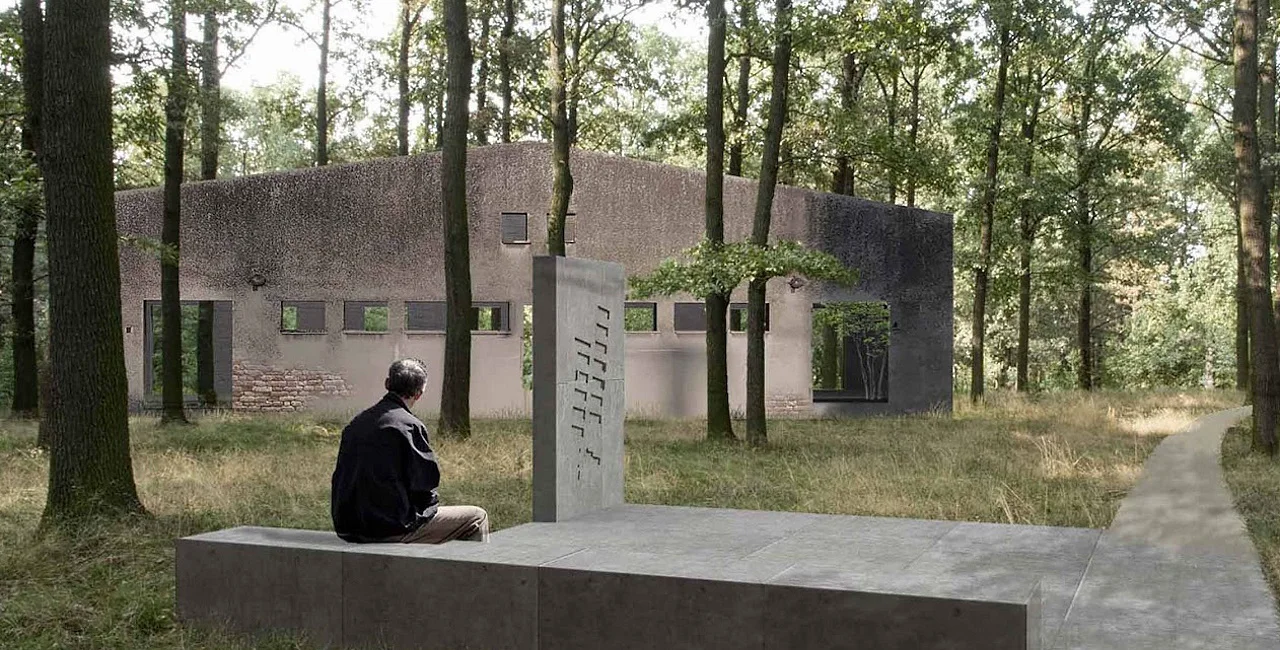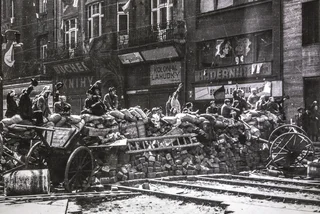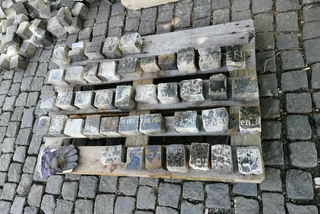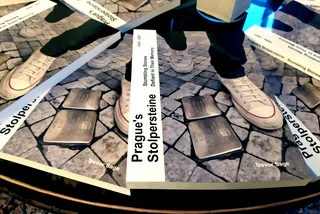Work will finally begin to make preparations for a landscaped memorial pavilion at the site of a former World War II-era internment camp for Roma and Sinti in Lety, South Bohemia.
A design for the memorial was selected in 2020, but the start of the project was delayed by the pandemic. The first step toward building the pavilion will be to remove the remnants of a pig farm on the site.
PARTNER ARTICLE
Demolition of the former pig farm will start on July 22. The site will be handed over to contractors at 1 p.m., and people will have the last opportunity to see the pig farm compound in the presence of war survivors, dignitaries, and Roma activists.
The project to create the Memorial to the Holocaust of the Roma and Sinti in Bohemia is being overseen by the Museum of Romani Culture, based in Brno. Efforts to remove the farm from the site go back to 1995.
“Since 1942, the complex served as a so-called Gypsy camp, where numerous Roma families with children were imprisoned. They were the most frequent victims of inhumane treatment and an insufficient hygienic environment. A ‘disciplinary labor camp’ and later a concentration camp was abolished in 1943, after the deportation of its inhabitants to the Auschwitz II-Birkenau concentration camp,” the Museum of Romani Culture said on social media.
The camp was established by the Nazis during their occupation of Bohemia and Moravia. Historians estimate that up to 90 percent of the Roma and Sinti in Bohemia and Moravia were killed by the Nazis.
The camp at Lety was first established in 1939 to as a labor camp for people who did not work and had criminal records, as having a job was compulsory.
The first prisoners arrived in 1940. After a year and a half, the Nazis changed the focus of the camp to holding Roma and Sinti families, as they were deemed to be undesirable. All of the non-Roma men were transferred to other camps, and Roma families began to arrive in October 1942.
A typhoid epidemic broke out in December 1942, and the camp was closed in May 1943 because the epidemic could not be controlled. Most of the inhabitants were sent to Auschwitz, but a few were relocated to another camp for Roma in Hodonín in Moravia.
“The presence of a pig farm in a place with this tragic history is still a painful wound for many. The construction of the monument and the restoration of dignity to this meaningful place, commemorating the Holocaust of Roma and Sinti in Bohemia, is therefore a significant social event,” they added.
According to historians, 1,308 Romani and Sinti men, women, and children were interned in the camp from August 1942 to May 1943. At least 327 people died in the camp and over 500 were sent to Auschwitz.
The cost of the demolition should not exceed CZK 110 million, museum spokeswoman Karolina Spielmannová said. The cost will be covered by the Czech Culture Ministry and from grants.
The Czech state bought the pig farm in 2018 for CZK 450 million from the agricultural firm Agpi, which kept 13,000 pigs there. The pig farm operated since the 1970s. The company AWT rekultivace won the public tender for the farm demolition.
A small monument was installed some 300 meters away from the former camp in 1995, and the whole area became a piece of national cultural heritage in 1998.
The new memorial will help to educate people about the fate of the Roma and Sinti in World War II and about the cultures in general.
“The memorial must also educate visitors and inform them about the history of the Roma and Sinti in Bohemia in the 20th century, explaining the roots of the discrimination and hatred against them and galvanizing the discussion of human rights and how to improve our coexistence here,” Museum of Romani Culture director Jana Horváthová told server Romea.cz.
After the farm is dismantled, the memorial will be constructed in two phases. The first will include a visitor center with an exhibition space and a multifunctional hall. The second phase will include landscaping for the entire grounds and the creation of a memorial trail around the entire site.

The winning design was a joint production by Jan Sulzer and Lucie Vogelová of the terra florida studio and Jan Světlík, Vojtěch Šedý and Filip Šefl from Ateliér Světlík. Roman Černohous and Petr Karlík also contributed to the winning design.
Demolition had been planned for late 2020 and the pavilion was to be finished in 2023, but the whole project was delayed due to the pandemic. A new opening date for the pavilion has not been announced.












 Reading time: 3 minutes
Reading time: 3 minutes 































